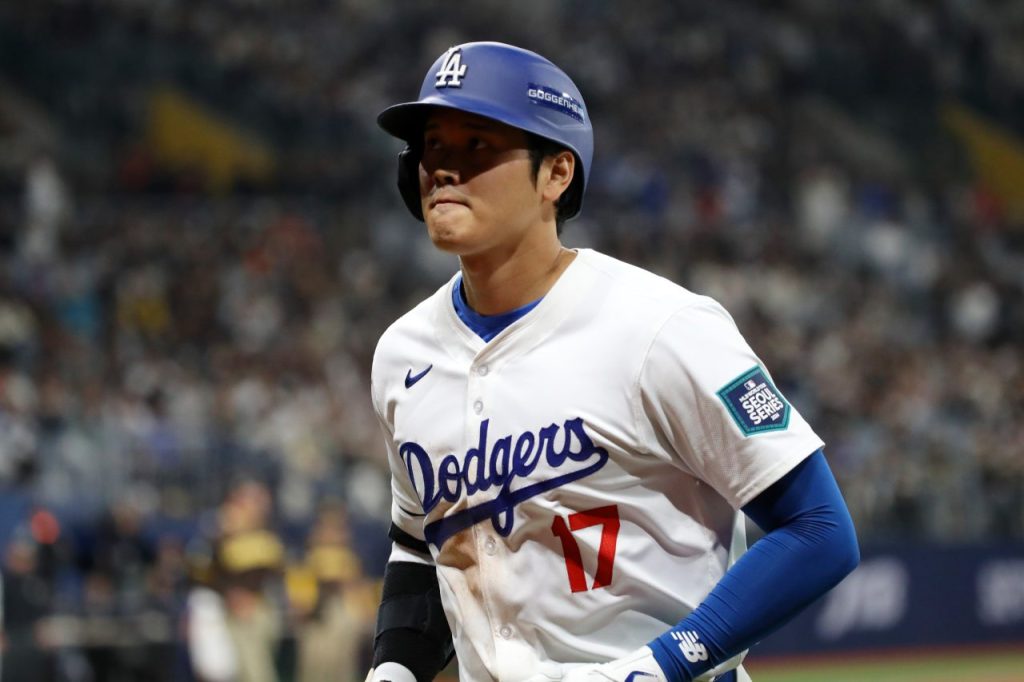
Photo provided by: Jung Sung-joon/Getty Images
Major League Baseball announced Friday that it has begun a formal investigation into the unusual circumstances surrounding the sports betting scandal involving the game's most famous star, Shohei Ohtani of the Los Angeles Dodgers.
It remains to be seen how much of the truth the investigation, overseen by a private organization, will reveal.
The Dodgers fired Ohtani's translator, Ippei Mizuhara, on Wednesday. Mizuhara is suspected of wire transfers totaling at least $4.5 million from Ohtani's bank account to California bookmaker Matthew Bowyer. In an interview with ESPN on Tuesday, Mizuhara asserted that he bets on other sports, but never on baseball. According to ESPN, Mizuhara later denied making the wire transfer, and Ohtani (whose representatives claim he never gambled and was the victim of theft) claimed he had no knowledge of Mizuhara's activities. It is said that he did.
Sports betting is legal in 38 states, but illegal in California. Bets placed across state lines or on foreign websites can also raise legal issues that draw the attention of federal law enforcement. According to ESPN, Bowyer's gambling activities are under investigation by the federal government.
MLB prohibits players, managers, and other game officials from betting on baseball. This type of betting will result in his one-year ban, which will be upgraded to a permanent ban if he bets on matches he is participating in.
The MLB Bureau of Investigation, which was established in 2008 in response to the Mitchell Report on illegal steroid use, will investigate Ohtani.
MLB has significant authority over Ohtani and others employed by MLB teams. They are contractually obligated to cooperate with the league's investigation. MLB players, managers and other personnel, including interpreters, could be suspended or fined if they fail to cooperate with or obstruct an investigation. The MLBPA can insist that players' rights are protected in the investigation, but ultimately requires players to cooperate.
Nevertheless, MLB faces several hurdles in trying to gather evidence.
First of all, Mizuhara's dismissal is an important and ambiguous development. It's unclear how the Dodgers hired or fired Mizuhara. If Mizuhara was hired on a contract basis or was terminated as part of a financial agreement with the team, he could be subject to confidentiality obligations. These obligations could be conditioned on him not continuing to receive payments from the Dodgers. MLB may force the Dodgers to lift confidentiality restrictions on Mizuwon.
MLB also faces some structural limitations in its approach to Suwon. Since he is no longer a member of MLB, he cannot be suspended or fined. He could simply refuse to talk to MLB, and MLB would not be able to force him to participate in the investigation. The same goes for Bowyer and other non-MLB figures involved in this controversy.
Those outside of MLB may conclude that there is little to be gained by working with the league. These individuals may soon find themselves embroiled in legal disputes with their former employers and the federal government.
As detailed by Sportico, Mizuhara may consider legal action against the Dodgers over his firing. Ohtani could also become a criminal defendant if the alleged money transfers from his bank account constitute theft or wire fraud. Anything he or anyone else tells MLB could be subpoenaed by federal authorities. Those concerned that their admission to MLB could later provide evidence for prosecutors to use in criminal charges may decide not to cooperate.
In that respect, MLB is a private organization. There is no subpoena power to compel depositions or the sharing of emails, texts or other forms of electronic evidence. Individuals who speak to MLB investigators are not under oath, but if the interviewee knows that if they tell the truth they may have to admit that they have broken the law or violated the ethics clause of their endorsement agreement. , this point is particularly important. When not under oath, a witness may knowingly lie without fear of perjury. They may also use interviews to provide incomplete or biased stories and shift blame onto others.
MLB has a long history of aggressively pursuing facts and evidence. When MLB investigated Pete Rose, they extracted information from Rose's bookmaker, Ron Peters, to build their case. When MLB suspected Biogenesis was supplying players with PEDs, it filed a lawsuit against a Florida clinic seeking access to customer records. The league is likely to take an aggressive approach in trying to uncover why Ohtani's account was used by a former MLB team employee to (apparently) transfer more than $4.5 million to bookmakers. be.


